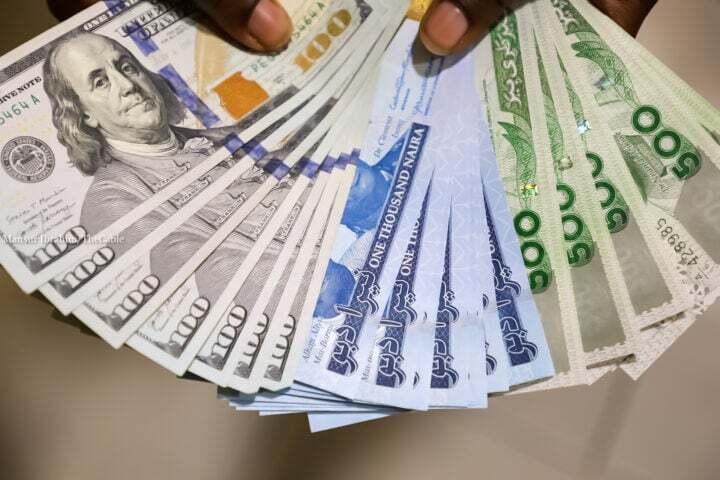
Aboki Naira to Dollar Black Market Rate Today, 13th April 2025
On Sunday, April 13, 2025, the black market exchange rate for the Nigerian Naira against the US Dollar, commonly referred to as the “Aboki” rate, reflects ongoing fluctuations in Nigeria’s parallel forex market.
According to street traders in Lagos’ Zone 4 market and online platforms tracking black market trends, the Naira is trading at an average of ₦1,610 to $1 by mid-morning. Buying rates hover around ₦1,605, while selling rates are quoted near ₦1,615, with slight variations observed in Abuja and Kano.
Trending Now!!:
The marginal stability in today’s rate follows a week of minor shifts, with the Naira appreciating slightly from Friday’s average of ₦1,627, as noted in some reports. Economic analysts attribute this to reduced dollar demand post-first quarter and speculative trading in the unregulated parallel market.
However, the gap between the black market and the Central Bank of Nigeria’s (CBN) official rate, reported at approximately ₦1,611, remains narrow, signaling ongoing CBN efforts to stabilize the Naira through forex interventions.
Traders and businesses continue to rely on the black market due to limited access to official forex channels despite risks of rate volatility. “The Aboki market is still king for quick dollar deals, but you have to watch the rates closely,” said Chinedu Okoye, a Lagos-based currency trader. Concerns linger over Nigeria’s inflation and foreign reserve levels, which could influence future rate movements.
For Nigerians seeking to exchange currencies, experts advise checking rates daily, as the unregulated nature of the black market leads to regional disparities.
As of today, other currencies in the parallel market include the British Pound at roughly ₦1,987 and the Euro at ₦1,822, showing similar steadiness. With no major economic data releases expected this Sunday, traders anticipate stable rates through the day, barring unexpected CBN policy shifts.

